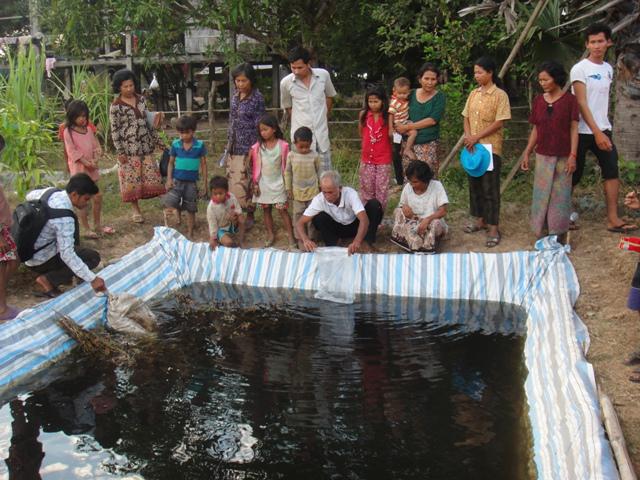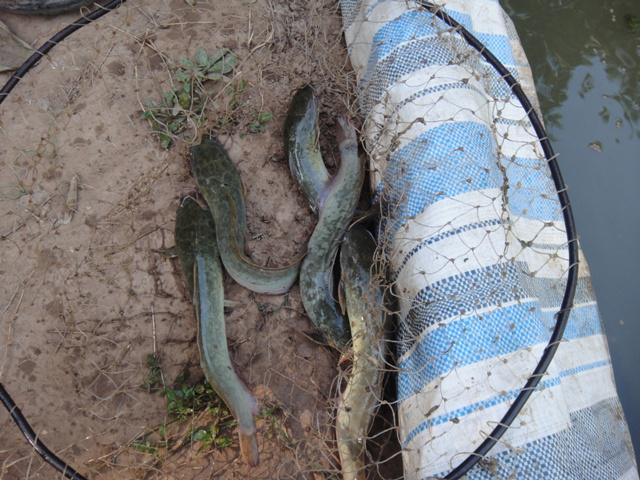Lou Vanny
Other projects
3 Sep 2012
Building Local Adaptation to Climate Change-Induced Changes in Water Levels for Sustainable Livelihoods in Mekong River in Stung Treng Ramsar Site, Cambodia
The aim of the project is to build adaptive capacities of freshwater fishing community through public awareness campaign on integrated system of family-scale fish culture and vegetable production.

Stung Treng Ramsar site contains the critically significant habitats for fish and other wild aquatic resources:

- Riverine inundated forest: growing on the sandy and rocky islands composed of some tree species supported by big buttress roots protruding downstream to prop up the trunks against the water current.
- River channels: running the length of the site play a crucial role in the migration of over 100 fish species. The bottom substrates are composed of alluvial deposits ranging from fine mud to larger pebbles and stones. Bedrock appears in certain area of fast-flowing water current.
- Deep pools: serve as main refuge for seasonally quiescent fish species and Irrawaddy dolphins—critically endangered species.
- Sandbars: provide dry season roosting grounds and breeding habitats for sandbar nesting water birds.
The wild aquatic animal and plant resources offer direct use values (household income and subsistent livelihoods) to many local people, especially Lower Mekong Basin-reliant fishermen. All these wild aquatic resources on which rural fishermen depend entirely for their livelihoods are noticeably declining due to the lowest water level in the LMB during the dry season of this year 2010. The losses of fish species and the increasing degradation of their natural habitats and food have become the serious concern for those who live on them for their subsistence livelihoods.
As it stands now, fish catches are susceptible to changes in the water level in the Mekong River. As a result, fish-dependent local people’s livelihoods are most affected. Therefore, with amount of fund approved by Rufford Small Grant for the first phase, the project will make a substantial contribution to the improvement of local fishermen’s livelihoods through public awareness campaign, along with the actual demonstration of integrated family-scale fish culture and vegetable production. By so doing, it will enable local people to reduce their heavy dependence on the natural resources, especially fish for food security and household income generation. Furthermore, aquatic resources will be better and local fishermen livelihoods once heavily dependent on aquatic resources improved and sustainable as well.